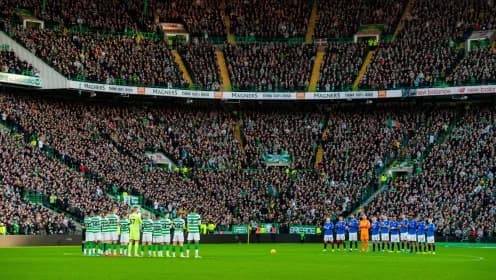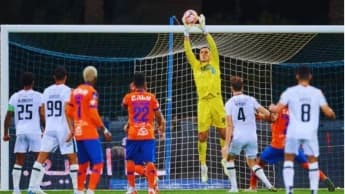Celtic Fans Disrupt Remembrance Silence at Kilmarnock Match

"Controversy erupts as Remembrance Sunday silence is disrupted by political chants at Kilmarnock vs. Celtic match, highlighting the complex intersection of sport and political expression during moments meant for solemn reflection."
What should have been a respectful moment of remembrance was marred by interruption during the pre-match silence ahead of Kilmarnock’s Scottish Premiership game against Celtic, resulting in controversy and an official apology from Sky Sports. This minute of silence, observed on Remembrance Sunday, was intended to pay tribute to fallen soldiers, with Kilmarnock officials facilitating the honorable act. Unfortunately, loud chants from Celtic supporters disrupted this moment, prompting Sky Sports commentator Ian Crocker to apologize live for the interruption.
In keeping with the tradition of Remembrance Sunday, a minute's silence was planned prior to the match. Kilmarnock player Kyle Vassell laid a wreath at the center circle, and a message was broadcast over the Rugby Park public address system urging fans to participate in the observance. Regrettably, the moment of silence was disrupted by loud chants from the Celtic supporters, which echoed throughout the stadium. These chants seemed to express wider political views, and the visiting fans prominently displayed a banner addressing the ongoing Israel-Palestine issue. The banner stated: “From Balfour to Starmer. The crimes of the empire live on. Britain is committing genocide in Gaza.”
The timing of the protest heightened the tension, occurring during a period that is typically set aside for solemn remembrance and contemplation. This disruption sparked considerable backlash from both supporters and commentators, as the political statements overshadowed the original intent of the memorial moment.
After the minute's silence ended, Crocker apologized to the viewers for the interruption. "I apologize if you were offended by the disturbance to the silence," he stated, attempting to ease any unease caused by the situation. This incident highlighted the intricate interplay between football and political issues, particularly on days of national importance such as Remembrance Sunday.
Kilmarnock's official social media account subsequently shared a message that underscored the significance of showing respect, reaffirming the club's dedication to commemorating the event. Although the interruption may have ignited discussion, it also brought to light the increasing overlap between sports and political expression, where traditional moments can at times conflict with modern-day concerns.
This event prompts important discussions regarding the role of football within political conversation and whether the pitch, particularly during moments of reflection, serves as a venue for genuine sporting respect or transforms into a stage for broader socio-political expressions.






